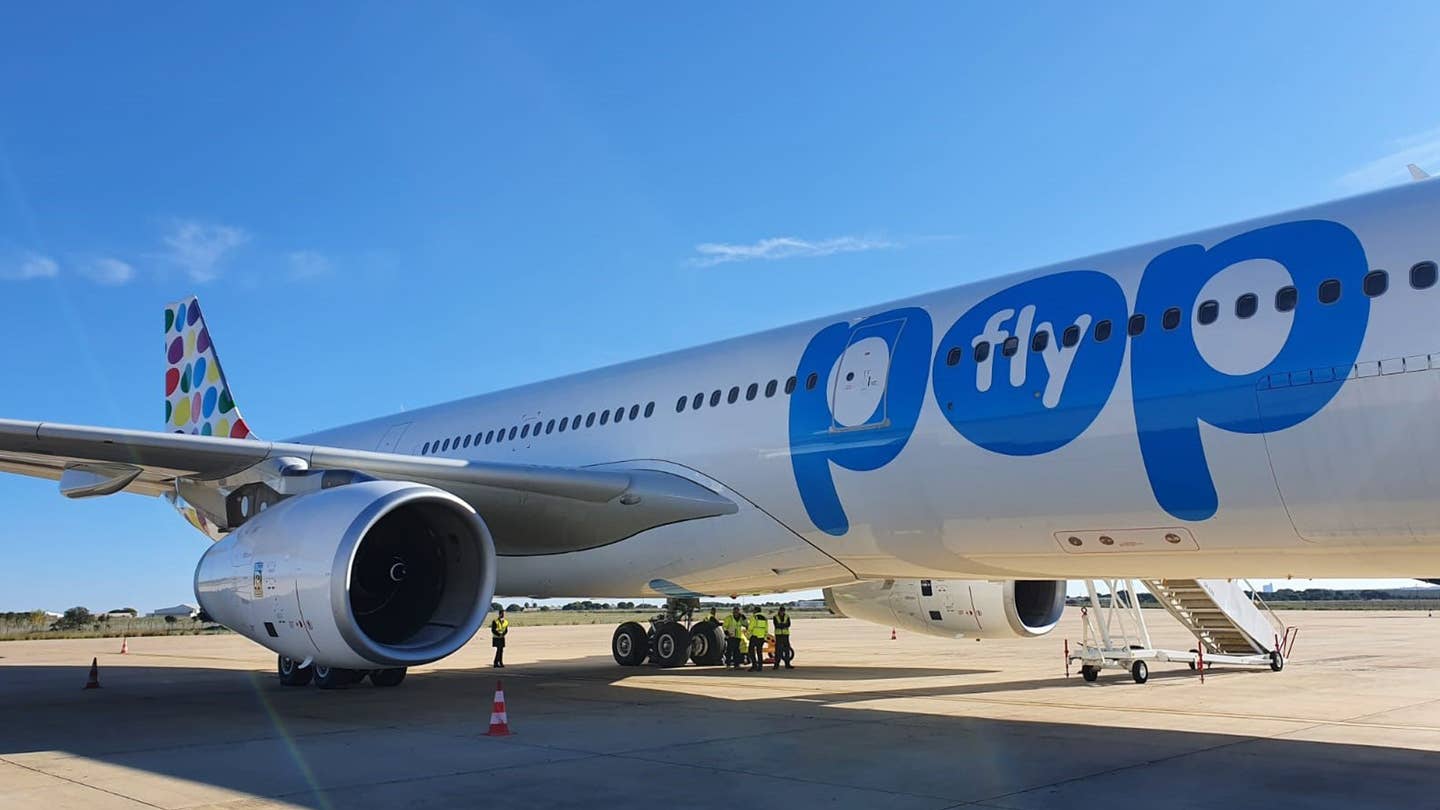Blocked From Flying Passengers, Budget Startup Flypop Turns to Cargo
Tired of waiting to get passenger service off the ground during the pandemic, startup low-cost carrier Flypop has decided to switch gears and debut as a cargo airline.

Flypop can’t get airborne as a passenger airline serving India, so it is temporarily turning to full-time cargo work to start generating some revenue. Credit: Flypop
Tired of waiting to get passenger service off the ground during the pandemic, startup low-cost carrier Flypop has decided to switch gears and debut as a cargo airline.
The U.K.-based airline said last week that it has redeployed its first Airbus A330 for dedicated cargo operations as a passenger freighter with its seats removed. The cargo-only flights are being operated for flypop by air charter specialist Hi Fly under its Malta operating certificate.
Flypop intends to deploy the passenger aircraft as an auxiliary freighter for about six months, a spokesperson said. The leased A330 were previously operated by Philippine carrier Cebu Pacific and recently painted in the distinctive flypop brand.
On Sunday, Flypop CEO Navdip Singh posted on LinkedIn that the temporary cargo operation had conducted its first mission, delivering bottled water to Iqaluit Airport (CYFB), in Nunavut, Canada, to help the Inuit and Nunavummiut tribes that have been without clean drinking water since a state of emergency was declared in mid-October after an apparent chemical contamination.
Flypop intends to serve secondary cities in India, such as Amritsar and Hyderabad, from London Stansted Airport (EGSS), but has experienced several delays over the past five years.
The pandemic forced airlines to cease passenger operations in 2020, and then India experienced a deadly wave of the delta variant last spring that led to severe border restrictions.
Flypop, which is focusing on diaspora communities looking to visit friends and relatives in South Asia, still can’t take off because the Indian government is limiting U.K. flights to 34 weekly frequencies per country even though the bilateral air agreement between the countries allows seven weekly flights for each party on any U.K.-India route, excluding five cities.
Management decided to commence with cargo operations until officials increase the frequency cap on U.K.-India flights, the spokesperson said.
“We hope our cargo routes will assist with the global demand for cargo and help to alleviate cargo shortages for the Christmas holidays and beyond,” Singh said in a statement.
Passenger airlines put many aircraft to use for cargo customers last year because of the shortage of cross-border airlift for goods when regular air travel shut down. In some cases, carriers removed seats from the cabin to free up more room for light cargo. But airlines have scaled back the tactic as passenger travel has picked up in certain markets, cargo rates cooled down from record highs and fuel costs increased, making it more difficult to turn a profit. Loading cargo on the main deck by hand is also much more labor intensive.
Another Malta-based carrier, Airhub Airlines, launched widebody cargo operations this month with its first zero-passenger Airbus A340 without seats and plans to have up to six Airbus A340s in the sky by the end of December.
Latvia’s SmartLynx, yet another passenger carrier that supports mainline airlines, earlier this year leased five Airbus A330 widebody aircraft and had their seats temporarily removed to increase cargo capacity on long-haul routes.

Subscribe to Our Newsletter
Get the latest FLYING stories delivered directly to your inbox






